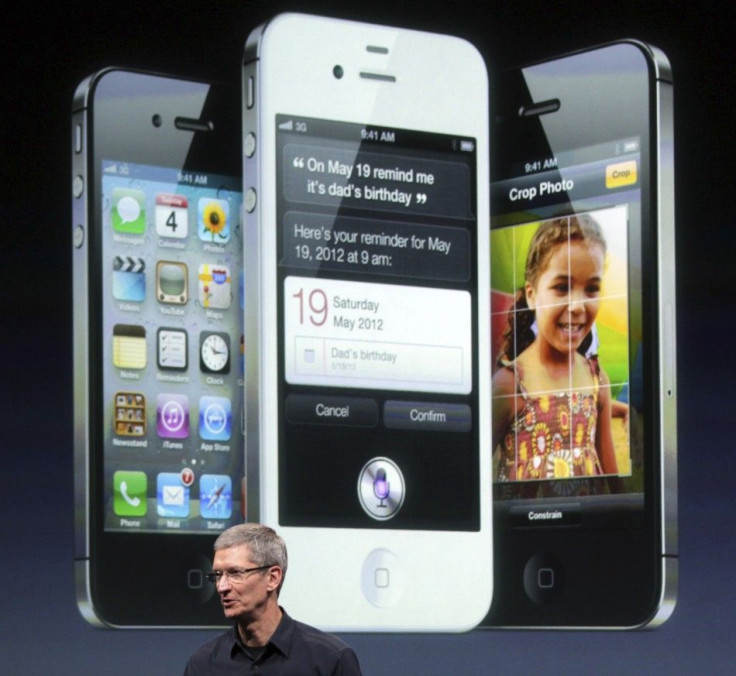Apple iPhone 4S: Brazil Release Features Steep Price, No Siri

Apple's iPhone 4S released in the U.S. on Oct. 14, and about two months later, the company's most advanced smartphone will finally launch in Brazil. The iPhone has always sold in Brazil at inflated prices, and the 4S will be no different, even though this version of the phone won't have its virtual personal assistant Siri. She will be installed on the Brazilian devices, but she just doesn't speak Portuguese yet.
The iPhone 4S will be predominately displayed at TIM retail stores around Brazil; TIM was the first mobile operator to be present in all Brazilian states, and has helped launch several mobile products in the country, including RIM's BlackBerry, and services like the TIM Music Store, which integrates with both the phone and the Internet. TIM will distribute tickets to buy the iPhone 4S at 10 p.m. Thursday, and will start to sell the device at midnight.
TIM won't be the only store selling the iPhone 4S; Apple's newest phone will be made available at Claro retail stores, which say they will welcome customers starting at 9:30 p.m., and Vivo, which will hold special events in three of its stores. TIM, however, has an extra bonus for the first 100 people to line up for the iPhone 4S: a free copy of Walter Isaacson's biography of Steve Jobs.
There are a few downsides to the iPhone 4S release: First of all, the price alone will be a heavy setback for many customers. The pricing hasn't been confirmed across Brazil's mobile operators yet, but TIM will reportedly vary its price range between $1,012 and $1,336. Another operator, Oi, said it would sell the iPhone 4S for about $1,065, but one Brazilian customer took a picture of the company selling an 8 GB iPhone 4 earlier this month for, gulp, $1,900. Those customers will surely experience buyer's remorse when they discover that Apple's upgraded phone is not only better, but substantially cheaper.
The Brazilian mobile operators, including TIM, Claro, Vivo and Oi, will also make the iPhone 4S available through online pre-orders and purchases, as well as on the Brazilian Apple Store itself. Those sites do not have any prices listed yet.
Apple has been busy in Brazil lately, and luckily it hasn't just been putting out fires. On Monday, the company launched its iTunes Store and iCloud service in the country and 15 others in Latin America, including Argentina, Bolivia, Chile, Colombia, Costa Rica, Dominican Republic, Ecuador, El Salvador, Guatemala, Honduras, Nicaragua, Panama, Paraguay, Peru and Venezuela. Of those countries, however, Brazil was the only one to receive Apple's iTunes Match Service, which automatically stores one's entire iTunes Library in the cloud, and songs, albums and playlists can be downloaded onto the device whenever they want for anytime listening. Every song uploaded to iTunes Match also gets automatically upgraded to iTunes Plus, Apple's DRM-free format with high-quality 256 kbps AAC encoding for crisp audio listening.
In addition, Apple also made its Apple TV platform available in Brazil Monday, adding the item to the Brazilian online Apple Store. Reports also claim that Apple is ready to launch the Games category in the Brazilian App Store, which is by far the most popular category in Apple's U.S. App Store.
Apple hopes to roll out the iPhone 4S in 33 new countries by the end of the year, including Latin American countries like Chile, after launching the phone in 22 new countries in November. Apple also says the company is working hard at installing new languages and dialects in Siri, to help users from those countries place calls, write texts and e-mails, set alarms and reminders, schedule meetings, get directions, and answer highly complex and context-sensitive questions.
© Copyright IBTimes 2025. All rights reserved.






















